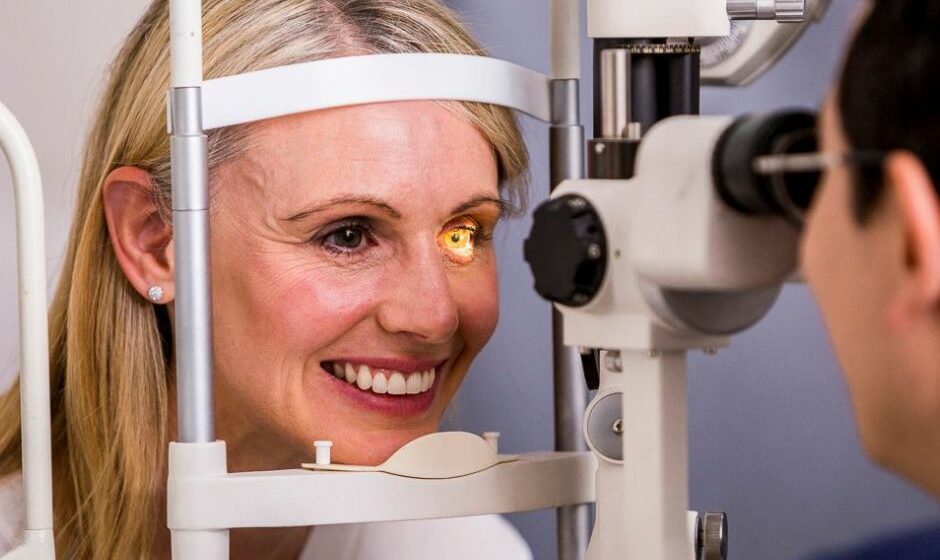- Our Locations: Swan St Eye Centre - 03 9428 0402
- Dingley Eye Centre - 03 9551 4244
- Our Locations:
Swan St Eye Centre - 03 9428 0402 - Dingley Eye Centre - 03 9551 4244

Beyond being the window to the soul, our eyes can provide valuable insights into our overall health. Optometrists play a crucial role not only in assessing vision and prescribing corrective measures but also in detecting various systemic diseases.
Diabetes:
Diabetes affects millions of people worldwide, and the eyes are particularly vulnerable to its effects. Optometrists can detect early signs of diabetic retinopathy, a condition caused by damage to the blood vessels in the retina. By examining the retina’s appearance and using specialised imaging techniques, optometrists can identify changes indicative of diabetes and refer patients for further management.
Hypertension:
High blood pressure can lead to hypertensive retinopathy, characterised by damage to the blood vessels in the retina. Optometrists carefully examine the retina’s appearance, searching for signs of narrowing, leakage, or other abnormalities. Detecting hypertensive retinopathy early on allows for timely intervention and coordination with primary care physicians to manage hypertension effectively.
Autoimmune Disorders:
Certain autoimmune disorders, such as lupus and rheumatoid arthritis, can manifest in ocular symptoms. Optometrists are trained to recognise signs of these conditions during eye exams. Dry eyes, inflammation, and changes in the blood vessels of the eye can be indicators of an underlying autoimmune disorder. Detecting these ocular manifestations can lead to early diagnosis and appropriate referral for systemic evaluation.
Thyroid Dysfunction:
Thyroid disorders, such as hyperthyroidism and hypothyroidism, can cause noticeable changes in the eyes. Optometrists may detect protrusion of the eyes (exophthalmos), eyelid retraction, or other eye muscle abnormalities associated with thyroid dysfunction. Early identification of these ocular manifestations can prompt further investigation and collaboration with endocrinologists for comprehensive care.
Multiple Sclerosis:
Multiple sclerosis (MS) is a chronic neurological disease that can affect vision and eye movements. Optometrists play a critical role in identifying optic neuritis, an inflammation of the optic nerve often associated with MS. By assessing visual acuity, colour vision, and performing specialised tests, optometrists can identify these early signs and facilitate prompt referral to a neurologist for diagnosis and treatment.
Alzheimer’s Disease:
Alzheimer’s disease is believed to be caused by tau proteins and amyloid beta plaques within the brain that then disrupts neurotransmission and thus memory retention. Deposition of the amyloid beta in the brain over many years is a characteristic of Alzheimer’s disease and recent research indicates that it also accumulates in the retina, given that the retina is an extension if the brain. Using specialised colour imaging, optometrists may one day routinely observe Alzheimer’s disease in a routine eye examination. Hopefully in the future, with a treatment available, optometrist will be the front line in combating Alzheimer’s disease.
Optometrists are not only vision experts but also vigilant healthcare professionals who can detect various diseases through comprehensive eye exams. From diabetes and hypertension to autoimmune disorders and neurological conditions, the eyes offer valuable clues about our overall health. Regular eye exams with optometrists can serve as a proactive approach to identify these diseases at their early stages, leading to timely intervention, collaboration with other healthcare providers, and improved patient outcomes. Remember, caring for your eyes means caring for your overall well-being.
